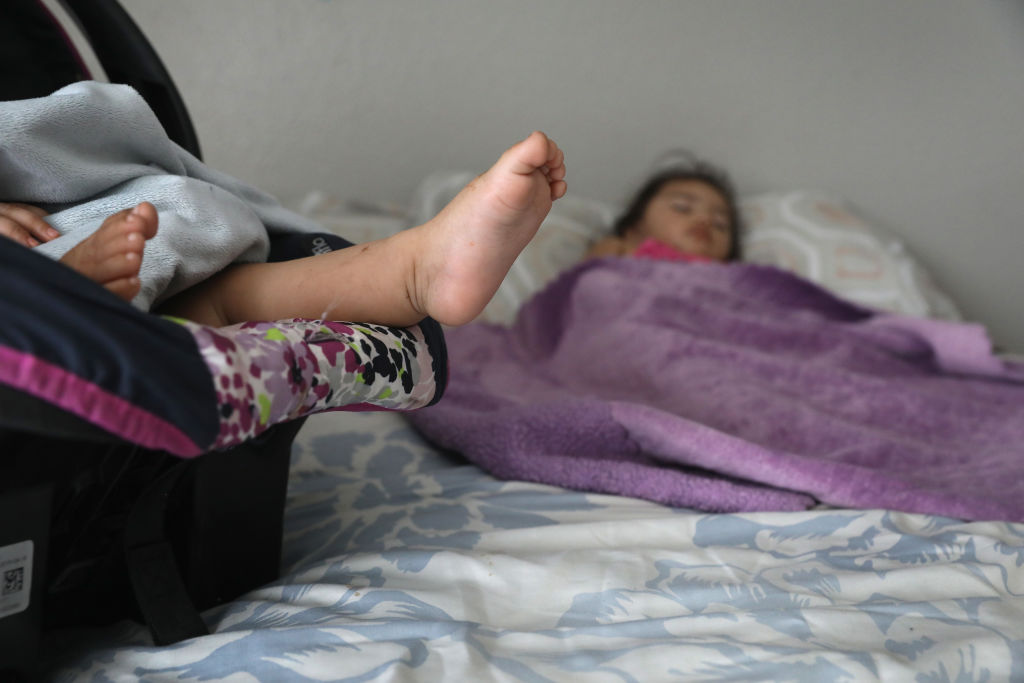Report: Where Kids Separated From Families Go
PHOENIX (AP) — The Trump administration has not figured out a way to reunite families separated by a new zero-tolerance policy enacted this year that's resulted in more than 2,000 kids being taken from their parents.
That's raised concerns about what happens to them and how long it will take to reunite families.
Critics of the administration's zero-tolerance policy say that it's not only cruel to split families up, but also unjust to not have a mechanism in place to get them back together.
The children are largely from Central American countries, where violence and gangs have forced many to flee. Mexican families, although smaller in numbers, are usually immediately deported because their country is so close to the U.S.
Here are the different scenarios children and families face when they try to enter the U.S. and become separated:
SEPARATION FROM PARENTS WHO CROSS THE BORDER ILLEGALLY
In the past, families with children caught after crossing the border illegally were allowed to stay together while their immigration cases played out in court. The administration's new policy calls for all adults to be detained pending prosecution with their children separated from them.
RELATED: Young Children Held in 'Tender Age' Facilities, No Clear Plan From Administration on Reuniting Families
That means kids are taken and put into the custody of the Border Patrol for up to 72 hours, and then released into the custody of the Office of Refugee Resettlement, a component of the U.S. Department of Health and Human Services.
Hundreds of immigrant children have been flown to shelters in cities far from where their parents are held. The government has about 100 shelters in 14 states, according to the Department of Homeland Security.
Officials say parents can use a hotline to find their kids, but immigrant advocates say not all people who are being detained are able to make the calls or get through from a foreign country if they've been deported.
Immigrant parents are much more likely to find their child or children if they have attorneys or advocates to track them down.
SEEKING ASYLUM AT PORT OF ENTRY BORDER CROSSINGS
The Trump administration says parents who present themselves at official ports of entry along the international border and seek asylum won't be prosecuted and won't be separated from their kids.
But immigrant advocates say that's misleading because customs officers aren't allowing many to enter the U.S. so they can legally claim asylum, forcing them to try to find other ways in.
Attorneys and advocates say that some children whose parents seek asylum are in fact being separated at ports of entry and that they're difficult to track down. The government says that only happens when immigrants cannot prove family relationship or when there is evidence children have been abused.
CHILDREN WHO CROSS THE BORDER ILLEGALLY WITHOUT PARENTS
Border authorities have been dealing with children who come to the U.S. without a parent for many years. The last major surge of unaccompanied children was in 2014, when so many came at one time that the Border Patrol had to open temporary holding facilities and place kids in large cages without beds or blankets, much like it's doing today with kids who are split from their parents.
RELATED: Several States Pull Troops From Border, Sessions Defends Care of Migrant Children
Unaccompanied minors can be held by the Border Patrol for up to 72 hours and are then transferred to the Office of Refugee Resettlement. The children are taken to shelters around the country while case workers try to find them suitable sponsors. Sponsors must be a parent, legal guardian or immediate relative. The government also checks for potential sponsors' legal immigration status, which advocates say has deterred relatives of children from trying to take them.
Children are placed in foster homes when suitable sponsors are not found.
RELEASE OF CHILDREN TO THEIR PARENTS
After children are released to a parent or relative, guardians must make sure the kids attend immigration court hearings and check in regularly with Immigration and Customs Enforcement.
Their cases usually take years to resolve because of the big backlog in immigration courts, where judges decide whether the children can stay in the U.S. or must be returned to their home countries.
Immigrants under age 21 who were abused, abandoned or neglected when they were minors may be eligible for special classification that could qualify them for legal permanent residency.
See AP's complete coverage of the debate over the Trump administration's policy of family separation at the border here:




